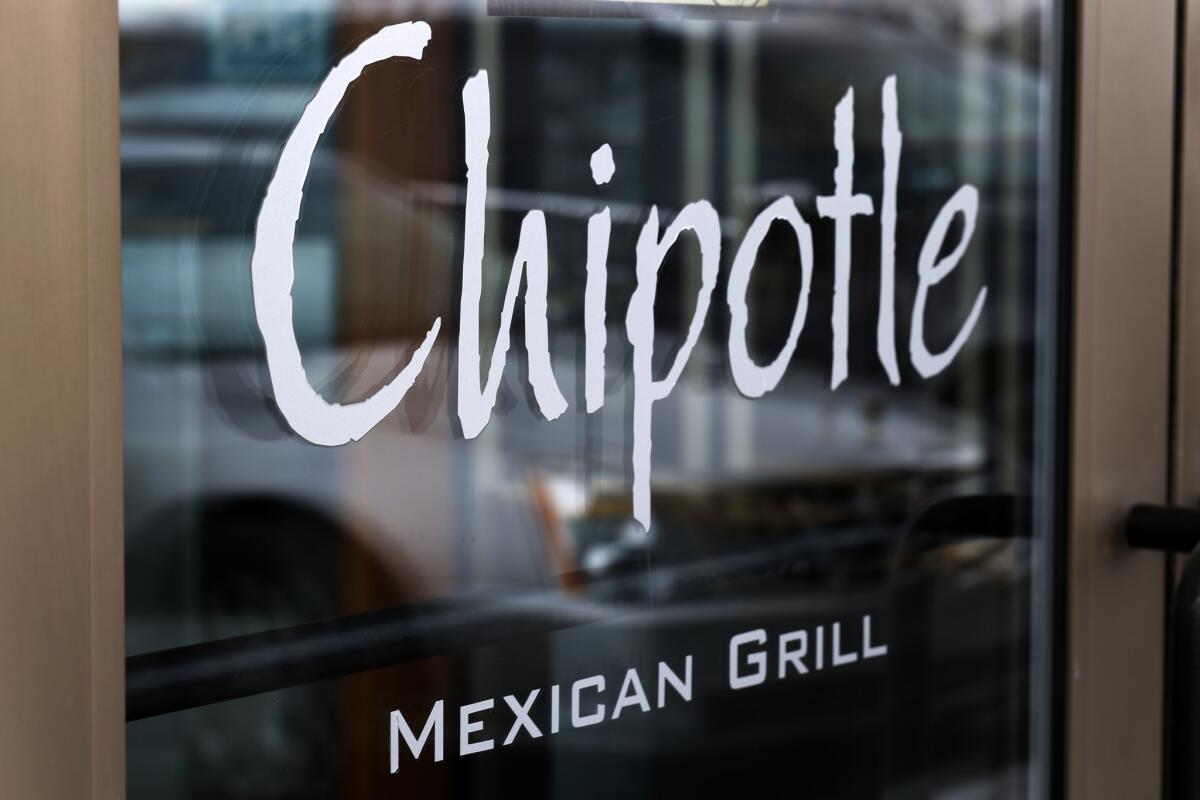Opinion: The Chipotle protests: People are species chauvinists, but so are cats and dogs

- Share via
Animal-rights activists have been targeting much of their venom lately toward Chipotle Mexican Grill restaurants but not other eateries that serve meat. Restaurants seldom bother much with whether the animals butchered for the menu items were treated humanely or raised using higher standards; Chipotle has actually done more than most to source from more humane livestock operations, avoid chickens that have been fed antibiotics and buy grass-fed beef when it’s available.
Over the weekend, one animal group, Direct Action Everywhere, was planning protests inside various Chipotle restaurants. The killing of animals to create Chipotle dishes is, a press release said, speciesism. I couldn’t quite believe the term existed, but according to the online dictionary, this is a word that has been in use since the early 1970s, meaning discrimination against animals. In a way, Chipotle is in the crosshairs because it has done more than most other restaurants -- and has advertised this widely. The idea of the protests being, you’re not doing better by doing better, as long as you cater to omnivores.
According to a Salon article by one animal activist, the reason for picking on Chipotle is that there is no such thing as humane treatment of an animal headed toward slaughter, because the killing of animals is inherently inhumane. That makes Chipotle a baddie because of its rapid growth, which means increasing numbers of animals killed.
OK, up to a point. The feeling among many vegetarians and vegans is that the killing of animals for food is just wrong (others choose that path for environmental or health reasons) and their viewpoint deserves respect. People might like eating meat, but certainly most of us are squeamish enough about where our food comes from not to want to do the killing and dressing ourselves.
That doesn’t mean vegetarians should insist on universal agreement. As with most personal beliefs, I draw a line when it comes to people aggressively proselytizing, assuming that others’ beliefs have no validity. And we all should draw a line when it comes to self-appointed judges going inside the doors of businesses to disrupt totally legal work.
The work of speciesism.
Here’s the issue with speciesism. The activists would have to use the same word to describe the activities of every carnivore or omnivore on the planet. Cats, whether lions or house kitties, are widely considered obligate carnivores, meaning they must have animal protein in their diets. In “The Lion King,” this was all explained as a circle-of-life thing, in which the carnivores eat the herbivores, but then the carnivores die and create more grass for the herbivores to eat. I imagine that explanation was never much comfort to a zebra.
But there it is. Grizzlies eat salmon and berries. Coyotes eat rabbits and squirrels and whatever small pets they can find in our yards, and their killing methods are about as far from kindly as you can get. Spiders eat insects. Outdoor kitties kill more than 1 billion wild birds each year in the United States. And man didn’t suddenly have it in for chickens because of the arrival of Chipotle; we’ve been eating some form of animal protein, it’s believed, since about forever, and began tackling large carnivores to feed our hunger about 2.6 million years ago. In some far northern Inuit communities, the diet is entirely or almost entirely meat, often whale, seal, caribou and/or muskox. Plant-based food doesn’t grow there for the most part; it’s speciesism or die.
Nature isn’t kind most of the time. Nature is, in fact, rife with speciesism.
Follow the Opinion section on Twitter @latimesopinion
More to Read
Sign up for Essential California
The most important California stories and recommendations in your inbox every morning.
You may occasionally receive promotional content from the Los Angeles Times.











